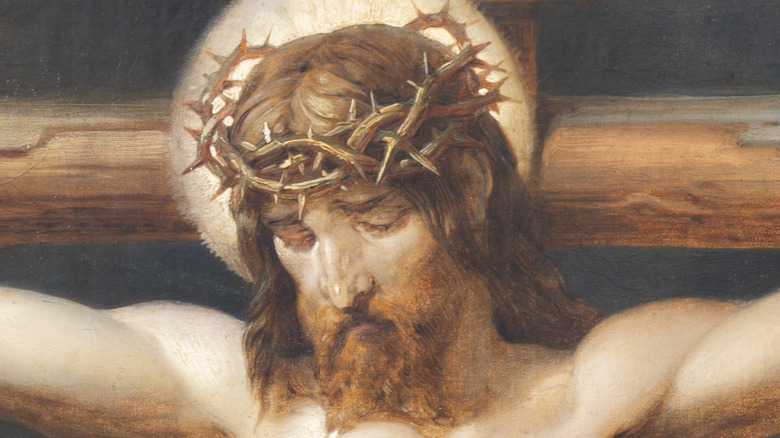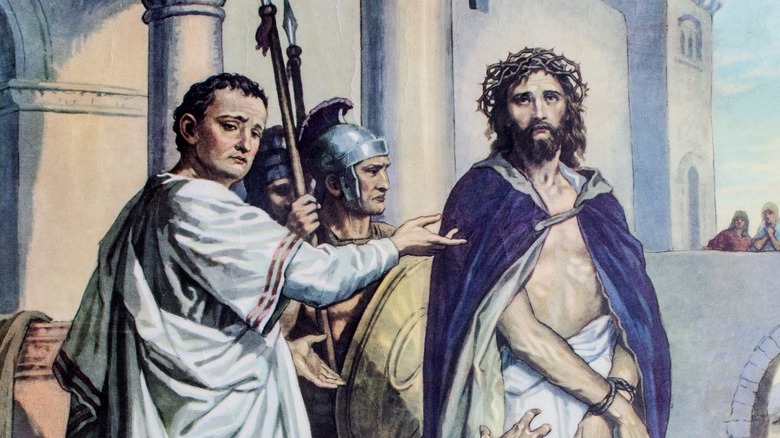The Real Reason Pontius Pilate Ordered Jesus' Death
When it comes to influential figures in history, generally we know a lot about them. Historical records document their numerous deeds, or there are many accounts of their one specific accomplishment. One historical figure who doesn't really fall into either of those categories (per Biography) is Pontius Pilate. We know him as the Roman official who ordered the execution of Jesus. Outside of that, we don't know much about him. However, arguably the most important question about him involves his real reason for ordering the death of Jesus, a man some believed to be the Son of God.
Pontius Pilate was a Roman governor who served under Emperor Tiberius, ruler of the Roman empire during the 1st century. In 26 A.D. Pilate was appointed prefect of Judea, a position of great power in that jurisdiction. While his responsibilities required that he manage things like infrastructure and taxes, he was also in charge of maintaining order in the provinces he oversaw. This of course included punishing any crimes that came before him. As prefect, he held all power when it came to administering penalties in the regions he ruled, which meant he often held the power of life and death in his hands. This was the case when Jesus was brought before him to stand trial.
According to Live Science, Pilate's relationship with the people he governed was complicated to say the least, and became more complex as he presided over a controversial trial. The results would echo through history.
Maintaining Rome's power was the ultimate goal
Most of what we know about Jesus' trial comes from multiple New Testament accounts in the Bible. According to those accounts, Pontius Pilate presided over the trial of Jesus and ultimately sentenced him to death. However, the question of his real reason for doing so has been a hotly debated topic for a long time.
Pilate is portrayed in different ways, depending on the sources you look at. Some (per Biography) characterize him as a cruel ruler who had no problem offending or executing those he ruled to get what he needed. There are also some who saw him as a somewhat benevolent leader who caved to pressure from those he ruled. Despite these differences, it seems that regardless of what type of leader he was, Pilate's decision to kill Jesus was politically motivated rather than whether or not Jesus had done anything "wrong.”
Pontius Pilate's position as governor made him an extension of the Roman Emperor Tiberius. As such, Pilate was under serious pressure to keep the realm secure at all costs. Though he already had existing conflicts with those he ruled, theoretically the one thing he absolutely could not tolerate was someone calling himself "king." Under Roman law, claims like this were considered treason. Essentially, the Romans were not worried about Jesus' religious beliefs. They just cared if he was a potential threat to Roman rule, as the Christianity website relates. Jesus and his claims were deemed enough of political threat for Pontius Pilate to order his execution, with the mocking words "King of the Jews" affixed to Jesus' cross.

